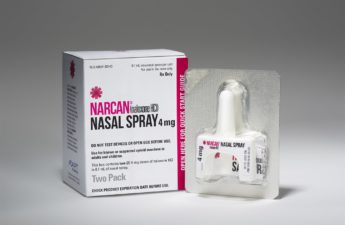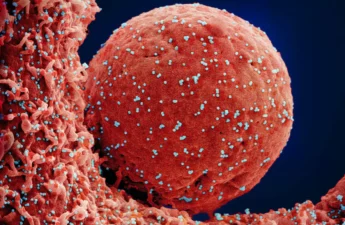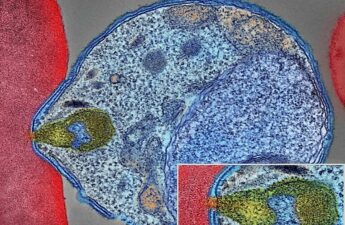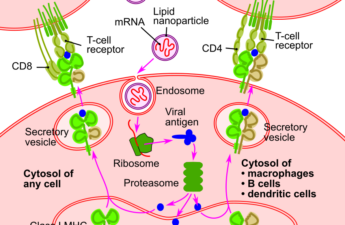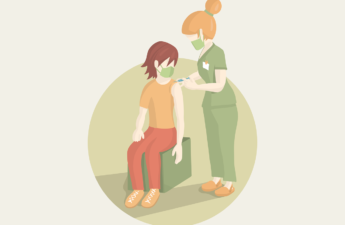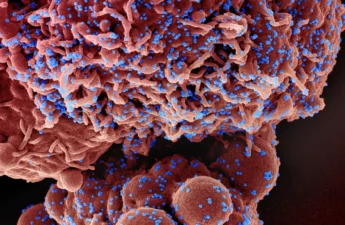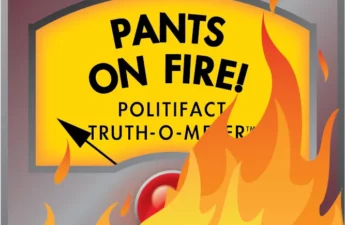Category: Drugs
As Zepbound dominates headlines as a new obesity-fighting drug, a nutritionist warns that weight loss shouldn’t be the only goal
Weight loss medications are intended to be used in conjunction with lifestyle changes, such as exercise and a healthy diet. But too often, people view them as a silver bullet for weight loss. And the high price tag and variable insurance coverage for these popular weight loss drugs create a barrier for many people.
Most people with chronic back pain naturally think their pain is caused by injuries or other problems in the body such as arthritis or bulging disks. But our research team has found that thinking about the root cause of pain as a process that’s occurring in the brain can help promote recovery.
How can I get some sleep? Which treatments actually work?
You might have tried breathing exercises, calming music, white noise, going to bed in a dark and quiet bedroom, eating different foods in the evening, maintaining a regular sleep pattern, or reducing caffeine. But after three to four weeks of what seems like progress, your insomnia returns. What next?
Amid Regulatory Gaps, Telehealth Prescribers Flourish
It’s easier than ever to get prescription drugs online. Should regulators be paying more attention?
The roots of the North American opioid crisis, and 3 key strategies for stopping it
The traditional “war on drugs” approach that focuses only on criminalization has been unsuccessful. In reality the data shows that illegal drug prices have fallen whilst purity and deaths have increased. Overdose deaths have also increased in prisons showing that places with even the highest level of security are vulnerable to drug smuggling.Focusing on the opioid crisis through a public-health approach includes massively increasing access to care and treatment for patients experiencing substance use disorder. It requires more evidence-based services such as addiction clinics, psychotherapy harm reduction strategies and education for both patients and families about treatments that are available to them.Beyond initial treatment there should be continued professional social support and a wider national effort to address the socioeconomic causes in disadvantaged communities.
How do stimulants actually work to reduce ADHD symptoms?
Stimulant drugs are thought to alter the activity of key neuotransmitters, dopamine and noradrenaline, in the brain. These neurotransmitters help with attention and focus, among other things.
Naloxone now available over the counter in King County
The medication naloxone, brand name Narcan, that can reverse the effects of an opioid overdose is now available over the counter in King County.
Fall Covid-19 Update
Will there be a new surge?
Who should get the new mRNA vaccines?
Are they safe and effective?
Most people who think they are allergic to penicillin aren’t
About 6% of people in the UK are wrongly labelled on their medical records as being allergic to penicillin. This figure is concerning because being labelled as allergic to this class of highly effective antibiotics is associated with an extra six deaths per 1,000 patients a year after being treated for an infection. If patients received the right antibiotic for their infection, many lives could be saved.
‘We could eradicate malaria by 2040’ says expert after revolutionary vaccine is approved by WHO
Malaria is very high on the list of diseases we want to eradicate. I don’t think it’s going to happen in five years or 10 years, but it should happen in something like 15 years. So 2040 would be a reasonable target.
Nobel prize in medicine awarded to mRNA pioneers – here’s how their discovery was integral to COVID vaccine development
Dr Katalin Karikó and Dr Drew Weissmanhave been awarded the Nobel Prize for their discoveries into mRNA biology. The pair were the first to discover a way of modifying mRNA that allowed it to successfully be delivered to cells and replicated by them. Their discovery was not only integral to COVID-19 vaccine development, but may also lead to the development of many other therapies – such as vaccines for cancer.
Commonly prescribed antidepressants and how they work
Antidepressants are among the most searched-for medications online. But there is a lot of information out there to sift through. The National Library of Medicine has pulled together some useful information about common types of these medications.
CDC Recommends Updated COVID-19 Vaccine for Fall/Winter Virus Season
Vaccination remains the best protection against COVID-19-related hospitalization and death. Vaccination also reduces your chance of suffering the effects of Long COVID, which can develop during or following acute infection and last for an extended duration. If you have not received a COVID-19 vaccine in the past 2 months, get an updated COVID-19 vaccine to protect yourself this fall and winter.
COVID-19 vaccine boosters are the best defence: Older adults shouldn’t rely on previous infection for immunity
We found that those who had battled the BA.1-2 variant of Omicron in early 2022 had a 30-fold higher risk of contracting the BA.5 variant later in the year. That was exactly the opposite of what we, or anyone, would have predicted. What the findings do tell us is that older adults who have had a previous COVID-19 infection shouldn’t rely on that to protect them against reinfection this fall. To protect against severe illness, keeping booster shots up to date is recommended.
Activist Misuses Federal Data to Make False Claim That Covid Vaccines Killed 676,000
There is no evidence that covid vaccines have killed Americans in large numbers, let alone 676,000. We rate the claim Pants on Fire!






